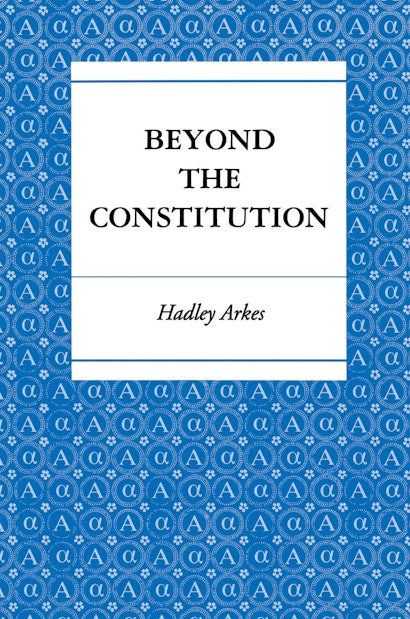Hadley Arkes argues that it is necessary to move “beyond the Constitution,” to the principles that stood antecedent to the text, if we are to understand the text and apply the Constitution to the cases that arise every day in our law.
"The most illuminating reconsideration of natural rights jurisprudence produced in many years."—Gary J. Jacobsohn, American Political Science Review
"Arkes brilliantly reexamines the jurisprudence of natural rights.... He deftly chews up and spits out Ely, Dworkin, and Tribe with erudition, vision, and a witty style. His ideas are highly controversial, stimulating, and often very attractive. They are full of common sense. This is a beautifully written book, full of flashes of insight, sometimes provoking thunderous laughter."—Appellate Practice Journal
"No thinker today brings greater intellectual verve and subtlety to delineating the connections between law and moral judgment than Hadley Arkes."—Richard John Neuhaus, President, Institute for Religion and Public Life
"The most significant work on the Constitution in the decade since John Ely's Democracy and Distrust . . . .Beyond the Constitution is 'must' reading."—Gerard V. Bradley, University of Illinois, College of Law
"That whose soul is brevity has been bestowed on Hadley Arkes in abundance . . . . [The] founding fathers would recognize in Arkes a kindred spirit. Here erudition and common sense are combined and bad arguments get what they deserve. One is reminded of Aristotle's definition of wit—well-bred insolence."—Ralph McInerny, University of Notre Dame

